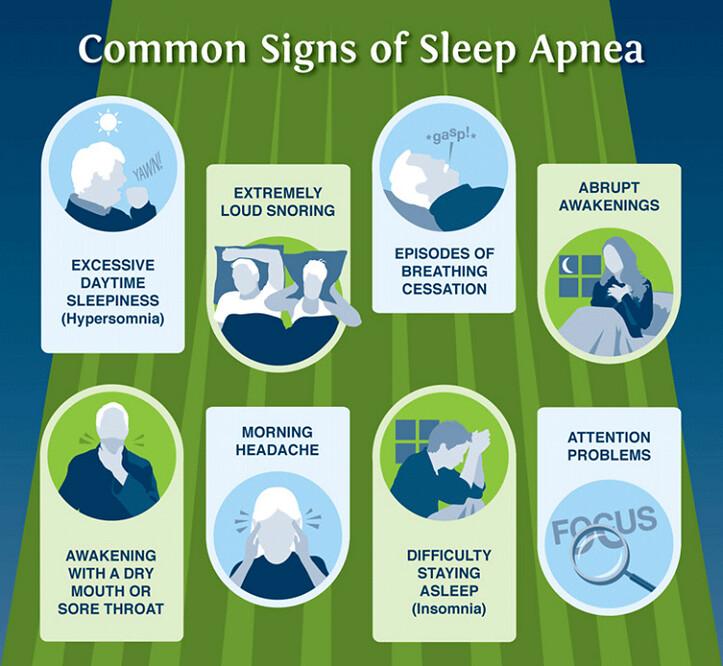In the silent hours of the night, when the world is cloaked in darkness and dreams take flight, a hidden struggle unfolds. It’s a battle waged in hushed breaths and interrupted slumbers, a clandestine conflict that many men are unaware they are fighting. Sleep apnea, a condition marked by repeated pauses in breathing during sleep, lurks in the shadows, often undiagnosed and misunderstood. Despite its prevalence, particularly among men, this nocturnal thief of rest remains largely unrecognized, its symptoms dismissed as mere snoring or fatigue. This article delves into the depths of this elusive disorder, exploring whether sleep apnea is indeed undiagnosed in most men, and unravels the reasons why this silent epidemic continues to evade detection. Join us as we shed light on the unseen, revealing the impact of sleep apnea on health and quality of life, and the steps that can be taken to bring this hidden adversary into the light.
Silent Night, Hidden Struggle
In the stillness of the night, many men unknowingly grapple with a condition that silently saps their vitality. Sleep apnea, often undiagnosed, lurks behind closed eyelids, its presence marked by fragmented sleep and intermittent breathlessness. Despite its prevalence, awareness remains astonishingly low. Men, particularly those who exhibit classic symptoms, might dismiss them as mere nuisances or signs of aging. Yet, the hidden struggle manifests in ways that ripple through their waking lives, affecting mood, energy, and overall health.
To uncover this nocturnal adversary, it’s crucial to recognize potential indicators. Some of these signs include:
- Loud and chronic snoring
- Gasping or choking during sleep
- Excessive daytime sleepiness
- Morning headaches
- Difficulty concentrating
These symptoms, while disruptive, often go unnoticed or are attributed to other causes. Encouraging men to seek medical advice can turn the tide against this silent invader, improving quality of life and reducing associated health risks. Through awareness and timely intervention, the hidden struggle of sleep apnea can be brought to light, ensuring peaceful nights and rejuvenated days.

Understanding the Overlooked Symptoms
When it comes to recognizing the telltale signs of sleep apnea, many focus solely on the more obvious indicators such as loud snoring or choking sounds during sleep. However, there are numerous subtle symptoms that are often overlooked, particularly in men. These lesser-known signs can have a profound impact on daily life, yet they remain underreported. Some of these symptoms include:
- Daytime fatigue: Despite getting a full night’s sleep, men may feel inexplicably tired throughout the day.
- Morning headaches: Frequent morning headaches can be a result of disrupted sleep patterns.
- Mood swings and irritability: Sleep apnea can lead to mood disturbances that are often attributed to stress or other lifestyle factors.
- Difficulty concentrating: Persistent sleep deprivation can impair cognitive functions, making it challenging to focus on tasks.
- Frequent urination at night: Known as nocturia, this symptom can disrupt sleep further and is often dismissed as a separate issue.
Understanding these overlooked symptoms is crucial for timely diagnosis and treatment. While they might seem unrelated at first glance, these signs collectively paint a picture of sleep apnea’s insidious nature, especially in men who might not exhibit the more classic symptoms. By broadening our awareness of these subtle indicators, we can better identify and address this common but often hidden condition.

Exploring the Impact on Mens Health
Sleep apnea, a condition characterized by interrupted breathing during sleep, often lurks unnoticed in the lives of many men. This silent disruptor not only affects the quality of rest but also carries a profound impact on overall health. Recent studies suggest that a significant number of men may be living with undiagnosed sleep apnea, leading to a cascade of health issues. These include:
- Cardiovascular Problems: Frequent pauses in breathing can increase blood pressure and strain the heart.
- Daytime Fatigue: Poor sleep quality results in chronic tiredness, impacting daily productivity and mood.
- Metabolic Issues: There’s a notable link between untreated sleep apnea and conditions like diabetes.
Identifying and addressing sleep apnea is crucial for men’s health. Awareness and timely intervention can prevent these health risks, paving the way for improved well-being and longevity.
Steps Toward Better Diagnosis and Management
To enhance the diagnosis and management of sleep apnea in men, it’s crucial to integrate innovative approaches and embrace a more comprehensive understanding of the condition. Collaboration among healthcare providers can lead to the development of better screening tools and techniques. These might include the use of advanced technology like portable home sleep testing devices, which can offer a more accessible and less intimidating option for those hesitant to undergo traditional sleep studies.
- Education and Awareness: Encouraging men to recognize the signs and symptoms of sleep apnea through targeted educational campaigns.
- Personalized Treatment Plans: Adapting treatment options to fit individual needs, whether through CPAP machines, lifestyle changes, or surgical interventions.
- Continuous Monitoring: Utilizing mobile apps and wearable devices to monitor sleep patterns and provide real-time data to healthcare providers.
By implementing these steps, the gap in sleep apnea diagnosis can be narrowed, ultimately leading to improved health outcomes for men. These measures, coupled with ongoing research, can pave the way for a future where sleep apnea is no longer an undiagnosed condition in the male population.








